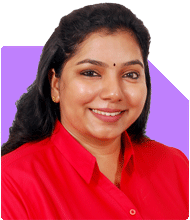Ramalingam Kalirajan |7478 Answers |Ask -Follow
Mutual Funds, Financial Planning Expert - Answered on May 10, 2024
He has an MBA in finance from the University of Madras and is a certified financial planner.
He is the director and chief financial planner at Holistic Investment, a Chennai-based firm that offers financial planning and wealth management advice.... more

I am MANJUNATH. I am central government employee. My monthly earning is 50k. I have 25 lack home loan and 5 lack personal loan. 3 years remaining to retire. Please suggest any financial plan for future.
It's good to hear that you're thinking about your financial future, especially with retirement approaching. Here's a suggested financial plan to help you prepare:
1. Debt Management: Start by prioritizing debt repayment. Focus on clearing high-interest debts like your personal loan first while making minimum payments on your home loan. Once the personal loan is paid off, allocate extra funds towards reducing your home loan burden.
2. Emergency Fund: Build an emergency fund to cover at least 3-6 months' worth of living expenses. This fund will provide a financial safety net in case of unexpected expenses or emergencies.
3. Retirement Planning: Since retirement is just 3 years away, it's crucial to focus on building your retirement corpus. Maximize contributions to your Employees' Provident Fund (EPF) and consider investing in additional retirement-focused schemes like the National Pension System (NPS) for additional tax benefits and long-term growth.
4. Investment Strategy: Develop a diversified investment portfolio that aligns with your risk tolerance and financial goals. Consider a mix of equity mutual funds, debt funds, and other investment avenues like Public Provident Fund (PPF) and Sukanya Samriddhi Yojana (if you have children). Regularly review and rebalance your portfolio to ensure it remains aligned with your goals.
5. Insurance Coverage: Ensure you have adequate insurance coverage, including health insurance and life insurance. Review your existing policies to make sure they meet your current needs and consider increasing coverage if necessary.
6. Financial Planning for Post-Retirement: Start planning for your post-retirement financial needs, including healthcare expenses, daily living costs, and any additional goals or aspirations you may have. Consider factors such as inflation and potential changes in lifestyle when estimating your retirement expenses.
7. Consultation with a Financial Advisor: Consider consulting with a Certified Financial Planner who can provide personalized advice tailored to your specific financial situation and retirement goals. They can help you create a comprehensive financial plan and guide you on how to achieve your objectives efficiently.
By following these steps and staying disciplined in your financial management, you can work towards securing a comfortable and financially stable future for yourself post-retirement.
Best Regards,
K. Ramalingam, MBA, CFP,
Chief Financial Planner,
www.holisticinvestment.in
You may like to see similar questions and answers below
Ramalingam Kalirajan |7478 Answers |Ask -Follow
Mutual Funds, Financial Planning Expert - Answered on May 27, 2024
Ramalingam Kalirajan |7478 Answers |Ask -Follow
Mutual Funds, Financial Planning Expert - Answered on Jun 11, 2024
Ramalingam Kalirajan |7478 Answers |Ask -Follow
Mutual Funds, Financial Planning Expert - Answered on Jul 10, 2024
Ramalingam Kalirajan |7478 Answers |Ask -Follow
Mutual Funds, Financial Planning Expert - Answered on Jul 30, 2024
Radheshyam Zanwar |1137 Answers |Ask -Follow
MHT-CET, IIT-JEE, NEET-UG Expert - Answered on Jan 09, 2025
Pushpa R |42 Answers |Ask -Follow
Yoga, Mindfulness Expert - Answered on Jan 09, 2025
Pushpa R |42 Answers |Ask -Follow
Yoga, Mindfulness Expert - Answered on Jan 09, 2025
Ravi Mittal |500 Answers |Ask -Follow
Dating, Relationships Expert - Answered on Jan 09, 2025
Ramalingam Kalirajan |7478 Answers |Ask -Follow
Mutual Funds, Financial Planning Expert - Answered on Jan 09, 2025
Kanchan Rai |479 Answers |Ask -Follow
Relationships Expert, Mind Coach - Answered on Jan 09, 2025
Kanchan Rai |479 Answers |Ask -Follow
Relationships Expert, Mind Coach - Answered on Jan 09, 2025
Radheshyam Zanwar |1137 Answers |Ask -Follow
MHT-CET, IIT-JEE, NEET-UG Expert - Answered on Jan 09, 2025
Milind Vadjikar |850 Answers |Ask -Follow
Insurance, Stocks, MF, PF Expert - Answered on Jan 09, 2025
Milind Vadjikar |850 Answers |Ask -Follow
Insurance, Stocks, MF, PF Expert - Answered on Jan 09, 2025


























